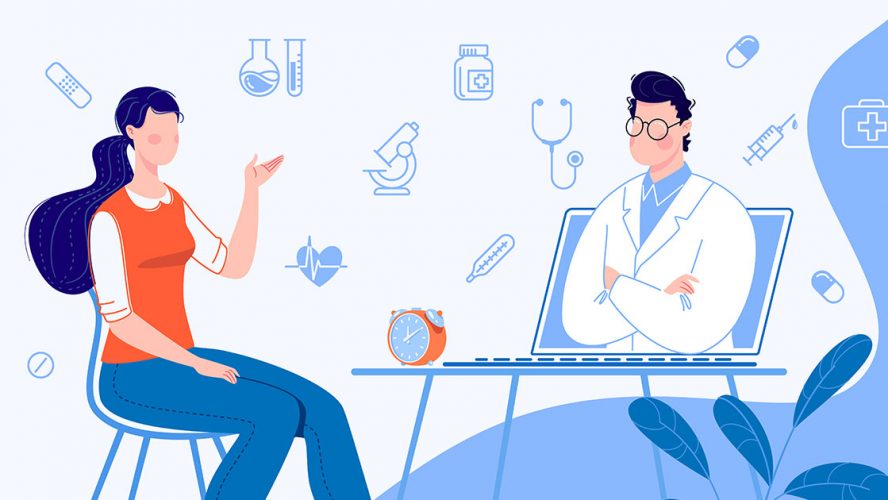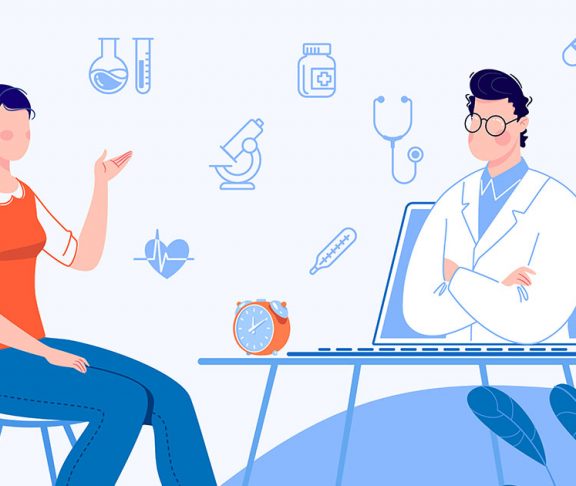Healthcare must reflect all of the opportunities of telehealth, but especially so for those suffering from rare diseases.

Lisa P. Sarfaty, M.P.H.
Director of Strategic Planning, National Organization for Rare Disorders (NORD)
Before the pandemic changed life as we know it, telehealth made up a minuscule portion of total healthcare visits across the United States (less than 0.01 percent). By mid-April of 2020, that number had skyrocketed to 69 percent. While the concept is not new (telehealth legislation has existed since 1996), patients could not always access it. Then, as a result of patient advocacy efforts and subsequent action by legislators, the COVID-19 public health emergency declaration expanded access to telehealth. This was welcome news for patients, especially those living with rare diseases.
The importance of telehealth
Why is telehealth important for people with rare diseases? For the past year, the team at the National Organization for Rare Disorders (NORD®) has been working to help the rare disease community safely navigate the pandemic. Patients and caregivers have joined us to advocate for expanded access to telehealth, and hundreds have told us about its positive effects during this time. These include helping them feel safer, eliminating days of travel to and from doctor visits, and moving forward with clinical trials that would have been delayed despite their own or a loved one’s progressive decline in health.
In the case of many rare diseases, there are only a handful of experts nationwide, or even worldwide, with expertise in certain conditions. In the absence of telehealth, patients travel long distances to access their treating provider, often experiencing long waits for appointments. Eighty percent of patients with rare diseases are treated by at least one specialist. Such travel can be costly, often results in missed work or school, and it presents logistical challenges that can be overwhelming or insurmountable when there is severe burden of illness. Not least of all, travel can pose health risks because many patients with rare diseases are immune-compromised, putting them at greater risk for complications from COVID-19 and other illnesses if exposed.
Participation in clinical research is another important area to examine when looking at the role of telehealth. Clinical research is needed for rare diseases, as approximately 90 percent of the 7,000 rare diseases still do not yet have an FDA-approved treatment. Clinical trials are essential to this process, yet many patients struggle to participate when the clinical trials take place far from home.
Simultaneously, patient interest in clinical trials is at an all-time high, with nearly 90 percent interested in using an investigational treatment. We are seeing how telehealth can help to decentralize clinical trials, reduce the need for travel and increase participation with remote monitoring devices, to name some potentials.
Knowing about the uphill challenges that exist, it is easy to understand how COVID-19 has had a significant impact for more than 25 million Americans living with rare diseases. During the pandemic, nearly 8 in 10 rare disease patients experienced canceled medical appointments.
A ray of hope
Despite disruptions to care and the overall awfulness of COVID-19, a ray of hope emerged with the rise of telehealth: 83 percent of rare disease patients were offered a telehealth visit by their health provider; 88 percent accepted a telehealth visit when offered; 92 percent of those who had a telehealth visit described it as a positive experience; and 70 percent would like the option of telehealth for future medical appointments. These numbers show that the demand for telehealth among rare disease patients is strong.
One thing that the pandemic has taught us is how to pivot in the face of unknowns. For patients, having a rare disease is filled with many unknowns. We may not be able to control how the cards are dealt, but we can control how we respond. With continued information sharing and collaboration among experts, scientists, healthcare workers, and advocates, together we will come out stronger.



